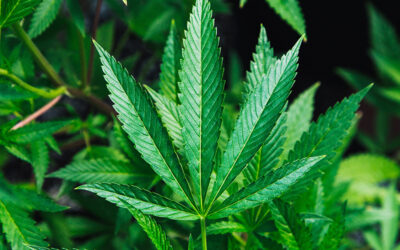Updated August 2019
Illinois has made significant progress in recent years when it comes to marijuana policy, legalizing cannabis for both medical and recreational purposes. Read more about Illinois marijuana laws below.
Recreational Marijuana in Illinois
Is marijuana legal in Illinois? Yes– Illinois became the 11th state to legalize recreational marijuana on June 25, 2019. The new law, signed by Gov. J.B. Pritzker, allows adults 21 years and older to possess and buy up to 1 ounce (30 grams) of marijuana at a time. The bill also expunges criminal records of nearly 800,000 people previously convicted of purchasing or possessing 30 grams of marijuana or less. The law takes effect January 1, 2020, and until then marijuana possession remains a crime.
Prior to recreational marijuana legalization, previous Illinois Gov. Bruce Rauner had signed a decriminalization bill in 2016 that made the possession of 10 grams or less of marijuana a civil offense punishable to a fine of up to $200. The law also removed the possibility of a criminal record and those found in possession are no longer subject to arrest or jail time.
Until the recreational marijuana law takes effect, possession of 10 to 30 grams of recreational marijuana is considered a misdemeanor if it is a first-time personal use offense. The subsequent offense of possessing 10grams to 30 grams will be charged as a felony. First offense of personal use of 30 grams to 500 grams is charged as a felony, but the offender has to serve a minimum mandatory sentence of 1 year, and maximum jail time is 6 years. The minimum mandatory sentence for the subsequent offense is 2 years. The mandatory jail time also applies to the sale of more than 10 grams of recreational marijuana as well. Note that first-time offenders may be given conditional release.
Medical Marijuana in Illinois
Illinois has had legal medical marijuana as of August 1, 2013, after Gov. Pat Quinn signed the Compassionate Use of Medical Cannabis Pilot Program Act. Public Act 98-0122 allows prescribed users to purchase and use up to 2.5 ounces of marijuana over a 14-day period. To be qualified, patients must acquire a medical marijuana prescription from a doctor who has an established history of treating the patient.
Under the law, patients must obtain medical marijuana only from one of 55 dispensaries authorized by the Illinois Department of Public Health. A caregiver is permitted to pick up medicine for very ill, homebound patients.
Initially, Illinois’ medical marijuana law was a pilot program. In June 2016, Gov. Bruce Rauner approved legislation that extended the state pilot program to at least July 2020 and expanded it to post-traumatic stress disorder (PTSD) and terminal illness. In August 2019, Gov. J.B. Pritzker approved SB 2023, which garnered overwhelming bipartisan support in the Illinois General Assembly, to make the state’s medical marijuana program permanent.
SB 2023 also gives veterans access to medical marijuana through the Opioid Alternative Pilot Program, while adding 12 new qualifying conditions for medical marijuana. It also allows nurse practitioners and physician assistants to certify prospective patients for the program.
As of today, the following conditions are approved for medical marijuana prescription in the state:
- Alzheimer’s Disease
- Amyotrophic Lateral Sclerosis (ALS)
- Anorexia Nervosa
- Arnold Chiari Malformation
- Autism
- Cachexia or Wasting Syndrome
- Cancer
- Causalgia
- Chronic Inflammatory Demyelinating Polyneuropathy
- Chronic Pain
- Complex Regional Pain Syndrome (Type 2)
- Crohn’s Disease
- Dystonia
- Ehler-Danlos Syndrome
- Fibromyalgia
- Fibrous Dysplasia
- Glaucoma
- Hepatitis C
- HIV/AIDS
- Hydrocephalus
- Hydromyelia
- Interstitial Cystitis
- Irritable Bowel Syndrome
- Lupus
- Migraines
- Multiple Sclerosis (MS)
- Muscular Dystrophy
- Myasthenia Gravis
- Myoclonus
- Nail-patella Syndrome
- Neuro-Behcet’s Autoimmune Disease
- Neurofibromatosis
- Neuropathy
- Osteoarthritis
- Parkinson’s Disease
- Polycystic Kidney Disease
- Post-Concussion Syndrome
- Post-Traumatic Stress Disorder (PTSD)
- Reflex Sympathetic Dystrophy
- Residual Limb Pain
- Rheumatoid Arthritis
- Seizures
- Sjogren’s Syndrome
- Spinal Cord Disease
- Spinocerebellar Ataxia (SCA)
- Superior Canal Dehiscence Syndrome
- Syringomyelia
- Tarlov Cysts
- Terminal Illness
- Tourette’s Syndrome
- Traumatic Brain Injury (TBI) and Post-Concussion Syndrome
Under the Alternatives to Opioids Act (SB 336), signed into law August 2018, patients prescribed opioid drugs can now register to obtain legal medical marijuana instead. The move is meant to help combat the opioid epidemic, which claimed the lives of nearly 2,000 people in Illinois in 2016. Under the law, doctors can authorize medical marijuana for patients qualified for a prescription for opioids like Vicodin, OxyContin, or Percocet.
Consumption of CBD from Hemp Oil in Illinois
Hemp-derived CBD products are legal under Federal Law in the United States; however, individual state laws are dynamic and fluid. Individual states may enact their own laws governing hemp-derived CBD.
Cultivation of Cannabis in Illinois
Personal cultivation of marijuana is illegal in Illinois, even for medical marijuana patients and caregivers. Cultivation of fewer than 5 plants is a misdemeanor punishable by a 1-year maximum jail sentence. Cultivating anything more 5 plants can result in a minimum mandatory sentence of up to 4 years and a maximum fine of up to $100,000.
In August 2018, Gov. Rauner signed into law the Industrial Hemp Act (Senate Bill 2298), which lifts the restrictions on the production of industrial hemp for commercial purposes. Growers licensed through the Department of Agriculture are legally allowed to cultivate and process hemp. Since 2014, the state had in place legislation that allowed the cultivation of industrial hemp, but for only agricultural or academic research purposes. The new law lifts those limitations.
Legal Status of Other U.S. States
Stay up to date on the latest state legislation, referendums, and public opinion polls. Our Marijuana Legalization Map allows you to browse the current status of medical and recreational marijuana laws in other U.S. states and territories.
Sources
- https://www.nbcchicago.com/blogs/ward-room/illinois-medical-marijuana-217854331.html
- http://medicalmarijuana.procon.org/view.resource.php?resourceID=000881
- http://norml.org/laws/item/illinois-penalties
- http://www.chicagoreader.com/Bleader/archives/2016/06/02/illinois-set-to-expand-its-medical-marijuana-pilot-program
- http://www.chicagotribune.com/news/local/breaking/ct-illinois-marijuana-decriminalzation-0730-20160729-story.html
DISCLAIMER: The information contained in this website is for general information purposes only; it does not constitute legal advice. Although we endeavor to keep the information up to date and correct, we make no representations or warranties of any kind, express or implied, about the completeness, accuracy, reliability, suitability or availability with respect to the website or the information, products, services, or related graphics contained on the website for any purpose. Therefore, any reliance you place on such information is strictly at your own risk.






